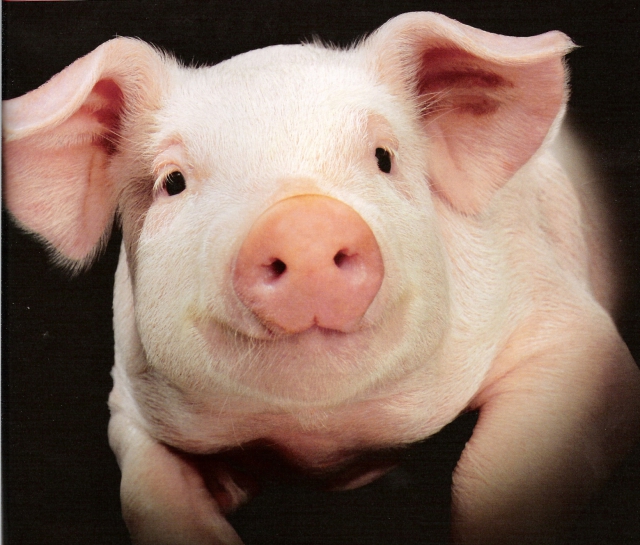From the Open-Publishing Calendar
From the Open-Publishing Newswire
Indybay Feature
South Korea: A Country of Cruelty
1.4 million pigs have been buried alive and 470,000 poultry birds have been slaughtered in South Korea in an attempt to control an outbreak of foot and mouth. The country is already renowned for it's cruelty to animals for keeping 1,400 bears caged for their bile and for consuming dog meat.
After 115 cases of foot and mouth were reported on the South Korean peninsula, the South Korean government took an extremely heartbreaking and controversial measure to try and control the spread of the disease. The country which is also engulfed with avian flu decided to conduct a mass culling of pigs. While 1.2 million animals have already been vaccinated in 8 of South Korea’s 16 provinces, 1.4 million pigs have been buried alive in mass graves. 10% of the countries livestock have been scheduled to be killed. 470,000 poultry birds have so far been slaughtered and commercial chicken and duck farms have been quarantined.
The country has completely gone against international guidelines of humane culling that it endorsed 5 years ago. Instead of spending $100 million on a vaccination programme, which would rule out any need for a cull, the government decided that slaughtering animals would save money. However, the mass culling has cost approximately $365 million according to Sky News. South Korean veterinary science professor, Kim Jae-hong from the Seoul National University described the outbreak as the most serious in Korea’s history.
South Korea is renowned for lacking any compassion when it comes to animal welfare. Dog meat is one of the countries most popular dishes. While there are some laws in place to restrict the sale of dog meat, these laws are not enforced. In the countries capital, for example, it is illegal to sell dog meat yet some restaurants continue to sell it without attracting any criticism from law enforcement. In 1998 20,000 restaurants were registered as selling dog meat in the country. While this number may have dropped, dog meat remains a popular dish.
South Korea also plays host to the bile trade, with 1,400 Asian Black Bears held captive and used for their bile. Animal advocacy organization Action for our Planet (AFOP) led a campaign to get the South Korean government to end the bile trade. However, the countries government failed to respond to the campaign.With the pig cull still continuing, many people are outraged that vaccinations were not widely enforced. The US Department of Agriculture has stated that vaccinations must be matched to the specific type and subtype of the virus strain so as to be effective.
Even so, an investment into vaccinations would save the South Korean government money and would spare the lives of millions of livestock. Foot and Mouth, Avian Flu and other viruses are thought to develop in factory farms where conditions are extremely poor, making it easier for the virus to transmit and spread.
The country has completely gone against international guidelines of humane culling that it endorsed 5 years ago. Instead of spending $100 million on a vaccination programme, which would rule out any need for a cull, the government decided that slaughtering animals would save money. However, the mass culling has cost approximately $365 million according to Sky News. South Korean veterinary science professor, Kim Jae-hong from the Seoul National University described the outbreak as the most serious in Korea’s history.
South Korea is renowned for lacking any compassion when it comes to animal welfare. Dog meat is one of the countries most popular dishes. While there are some laws in place to restrict the sale of dog meat, these laws are not enforced. In the countries capital, for example, it is illegal to sell dog meat yet some restaurants continue to sell it without attracting any criticism from law enforcement. In 1998 20,000 restaurants were registered as selling dog meat in the country. While this number may have dropped, dog meat remains a popular dish.
South Korea also plays host to the bile trade, with 1,400 Asian Black Bears held captive and used for their bile. Animal advocacy organization Action for our Planet (AFOP) led a campaign to get the South Korean government to end the bile trade. However, the countries government failed to respond to the campaign.With the pig cull still continuing, many people are outraged that vaccinations were not widely enforced. The US Department of Agriculture has stated that vaccinations must be matched to the specific type and subtype of the virus strain so as to be effective.
Even so, an investment into vaccinations would save the South Korean government money and would spare the lives of millions of livestock. Foot and Mouth, Avian Flu and other viruses are thought to develop in factory farms where conditions are extremely poor, making it easier for the virus to transmit and spread.
For more information:
http://www.actionforourplanet.com
We are 100% volunteer and depend on your participation to sustain our efforts!
Get Involved
If you'd like to help with maintaining or developing the website, contact us.
Publish
Publish your stories and upcoming events on Indybay.
Topics
More
Search Indybay's Archives
Advanced Search
►
▼
IMC Network




For more information about this, including stats and pictures of the culling see the Korea Animal Rights Advocates website